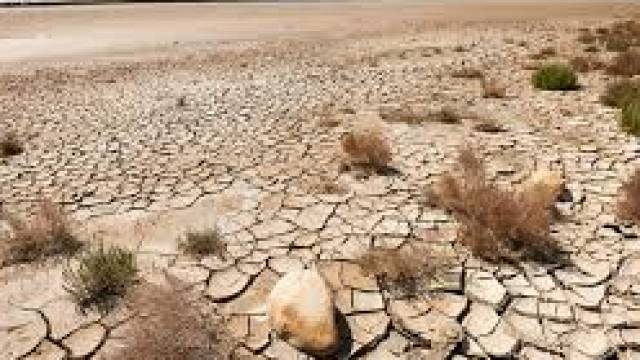Significant Risk of Water-Related Conflict in Parts of Iraq, Iran, Mali, Nigeria, India and Pakistan Over Next 12 Months
New Water, Peace and Security tool uses machine learning to predict violent conflicts, with an 86% success rate

Significant Risk of Water-Related Conflict in Parts of Iraq, Iran, Mali, Nigeria, India and
GENEVA —What if we could predict violent conflicts before they arise and help stop them? A groundbreaking new tool, launched today by the Water, Peace and Security (WPS) partnership, can predict the risk of violent conflicts up to 12 months ahead of time. The WPS Global Early Warning Tool uses machine learning coupled with environmental, meteorological, social and economic data to forecast exactly where organized violence is likely to occur. This tool will enable global development, diplomacy, disaster response and defense experts – together with country governments and local stakeholders – to intervene and help defuse conflicts before blood is shed.
The WPS Global Early Warning Tool predicts the risk of conflict over the coming 12 months across Africa, the Middle East, and South and Southeast Asia (and soon globally) by analyzing patterns between violent conflict and more than 80 environmental, economic and social variables going back 20 years, and then compares those patterns to current conditions to pinpoint potential hotspots. The tool has highly granular spatial resolution – at the sub-provincial or district/county level. Early trials suggest an 86% success rate in identifying conflict situations where instances of organized violence lead to more than 10 fatalities. The tool is unique in separating emerging conflicts from ongoing conflicts. Our initial findings show that the tool’s water risk indicators are significant in predicting emerging conflict.
Water is certainly not the only driver of conflict, but it is an important – and often overlooked – one. A quarter of the world’s population lives in extremely water stressed areas. While action on water issues can serve as a means of building peace, water risks like drought, scarcity, pollution and floods can also serve as threat multipliers that help trigger conflict or contribute to famine, loss of livelihoods or displacement. Previous early warning tools have only focused on vulnerabilities such as political, economic, social and demographic factors to predict conflict. The WPS Global Early Warning Tool is unique because it combines these factors with environmental variables linked to water – such as rainfall, water scarcity and crop failures – to understand the full picture.
Initial findings from the WPS Global Early Warning Tool predict risk of conflict in the next 12 months in many parts of the world, including:
- In Basra, Iraq, where water is one of several factors stirring up tensions. Due to seawater coming upstream from the Persian Gulf and pollution coming downriver on the Tigris and Euphrates, many people there lack access to clean water, with more than 120,000 people hospitalized after drinking polluted water last year. This has led to violent protests, and we believe this situation could further deteriorate if water issues aren’t addressed.
- Across the border in southwestern Iran, residents of Khorramshahr and Abadan recently experienced water shortages and poor-quality drinking water, helping trigger violent protests that we also expect to see intensify in the region.
- In Mali, we expect the conflict zone to extend further south. Here, Dogon farmers and Fulani herders are embroiled in a cycle of deadly violence over increasingly scarce water and land resources, made worse by ethnic differences and the presence of outside armed groups.
- n Pakistan and India, farmer protests over scarce water for irrigation are commonplace, including some violence.
- In Nigeria, killings and reprisals between farmer and pastoralist groups over scarce water and land resources are reaching a crescendo.
Why consider water? In Syria, unsustainable use of water to irrigate agriculture together with a record five-year drought from 2006-2011 forced up to 1.5 million farmers and their families to migrate to urban centers and likely contributed to destabilizing an already very fragile situation. In Somalia, drought and conflict have converged, causing a quarter of a million people to flee from their homes. In India in 2016, riots over water turned deadly when the Supreme Court ordered the state of Karnataka to provide water to relieve drought-stricken farmers in neighboring Tamil Nadu. The ability to predict where possible water-related tensions are rising and help local actors provide targeted interventions is absolutely essential.
The Water, Peace and Security partnership is comprised of six organizations who specialize in environment, development and international security: IHE Delft, World Resources Institute, Deltares, The Hague Center for Strategic Studies, International Alert and Wetlands International. There are three affiliated partners, including the Pacific Institute, Oregon State University, and New America. In addition to the Global Early Warning Tool, WPS is developing country-specific tools and approaches to more deeply analyze local drivers of conflict and underlying issues and to support conflict sensitive interventions that can address or mitigate the threats. This will help national and local stakeholders offer direct interventions that can more quickly avert violence.
The tool was released today at the World Meteorological Organization in Geneva in the presence of Sigrid Kaag, Minister for Foreign Trade and Development Cooperation of the Netherlands, Petteri Taalas, Secretary-General of the World Meteorological Organization and Yves Daccord, Director-General of the International Committee of the Red Cross just ahead of the 33rd International Conference of the Red Cross and Red Crescent. In 2018, an early version of the WPS Global Tool was presented at the United Nations Security Council.
Water, Peace and Security (WPS) is a collaboration between six partners: IHE Delft, World Resources Institute, Deltares, The Hague Centre for Strategic Studies, Wetlands International and International Alert, funded by the Netherlands Ministry of Foreign Affairs. The initiative is intended to become an open network that can bring together knowledge, capacities and activities directed at speeding up and scaling up preventative action in the context of water stress-induced conflict, migration, or other forms of social destabilization. Hence, the consortium collaborates with a growing number of other institutions, incl